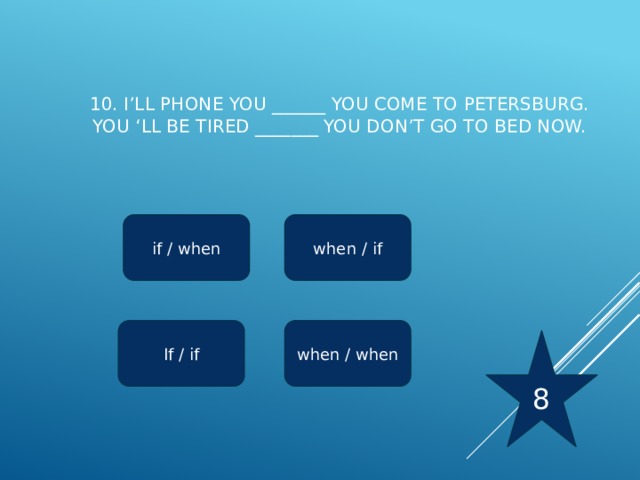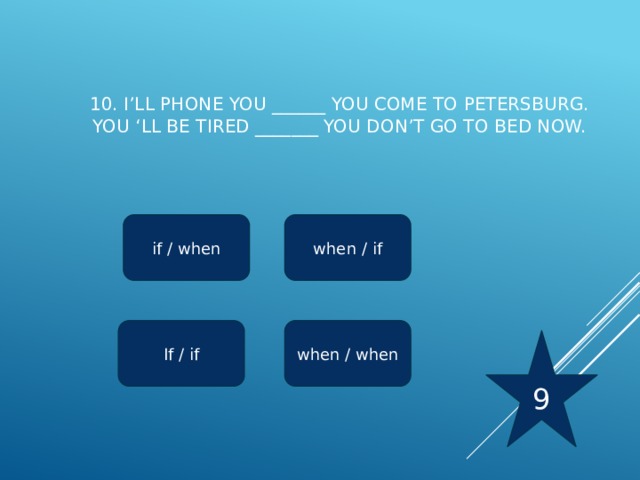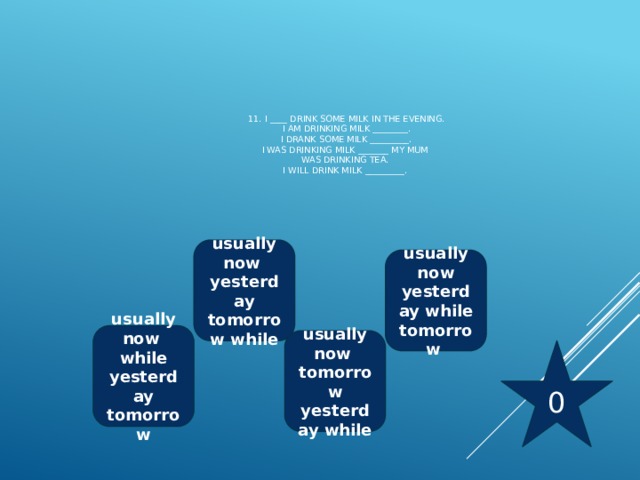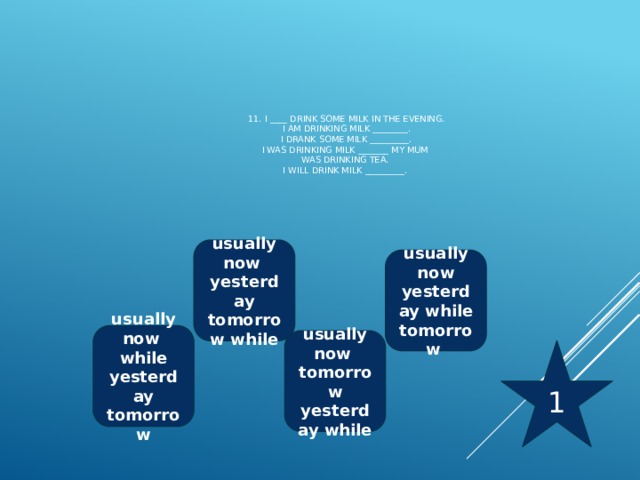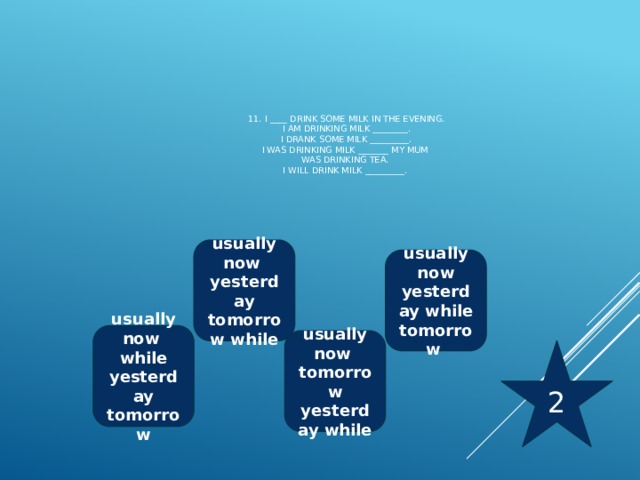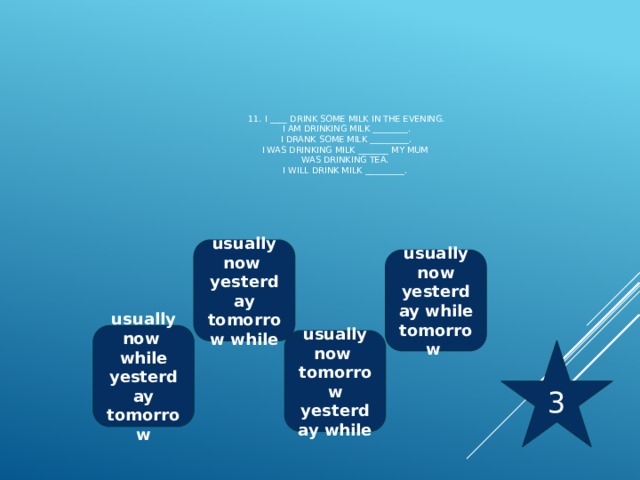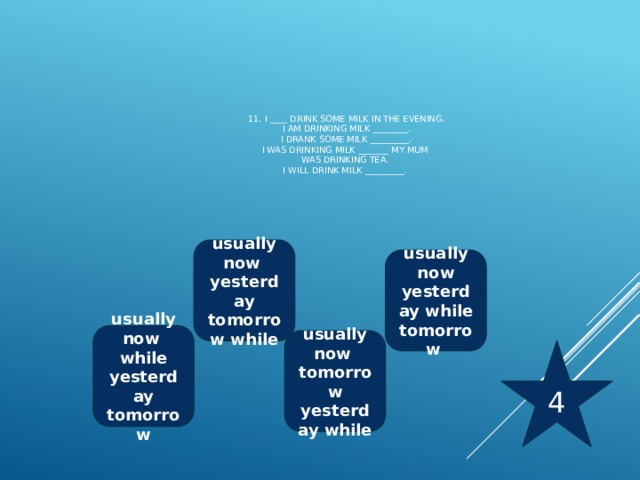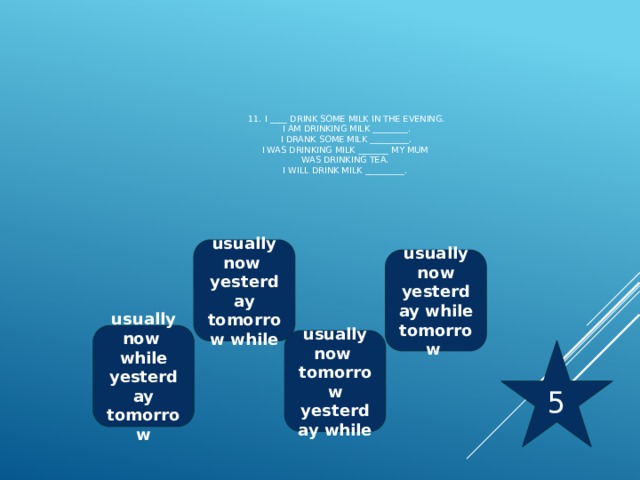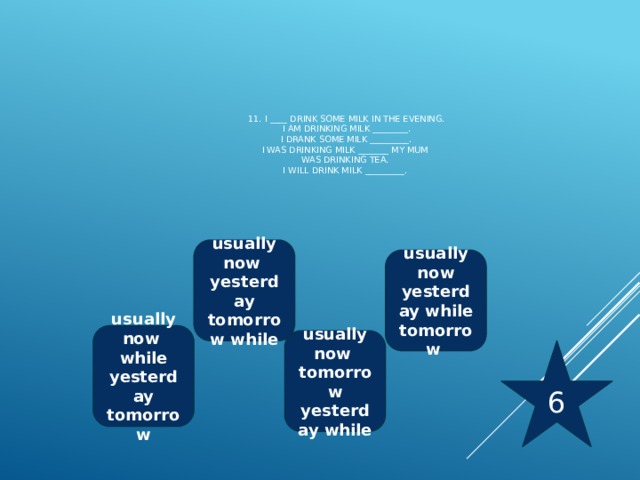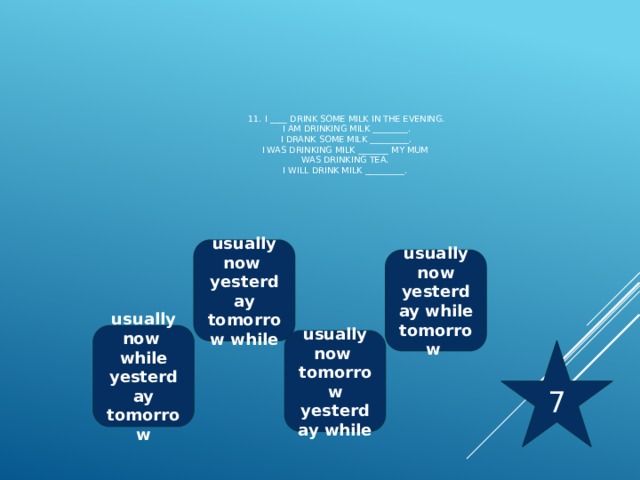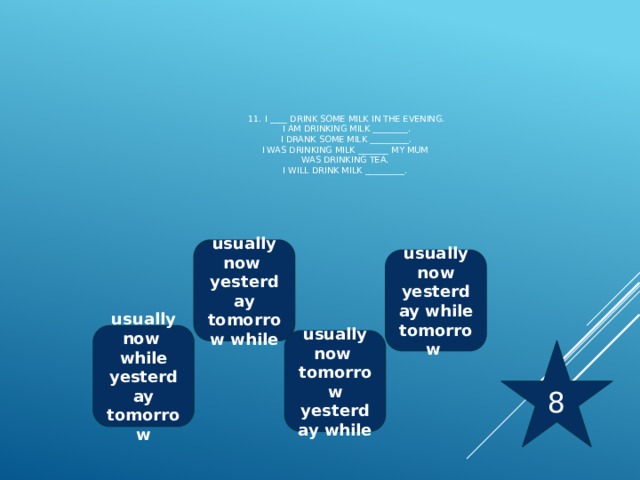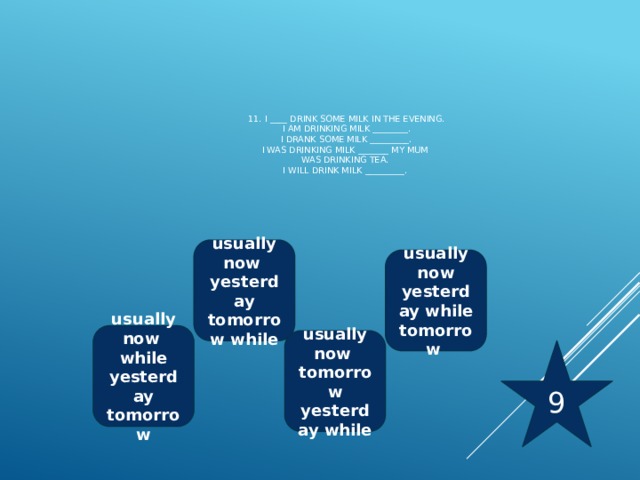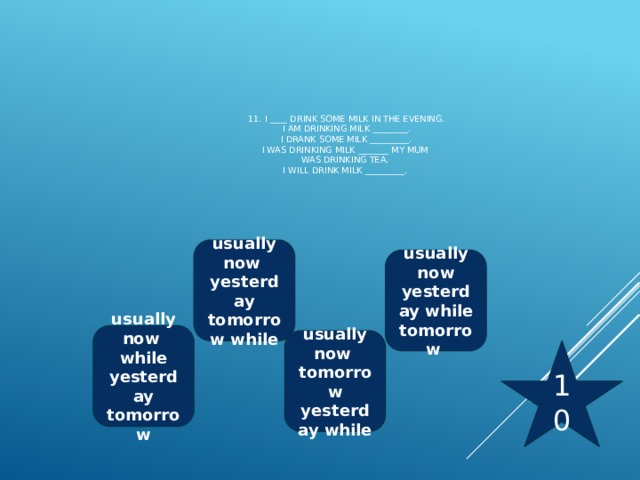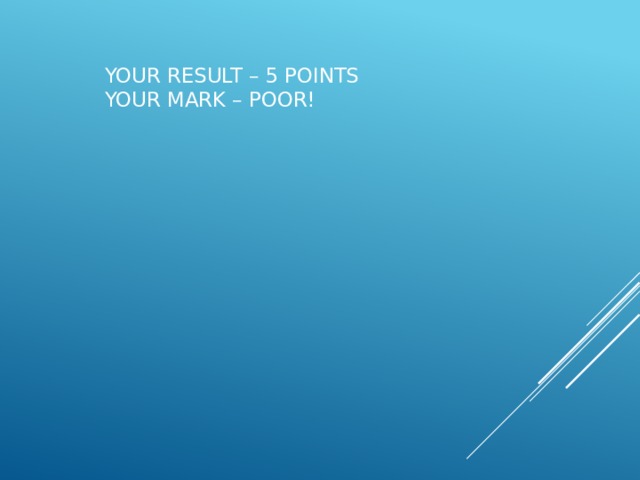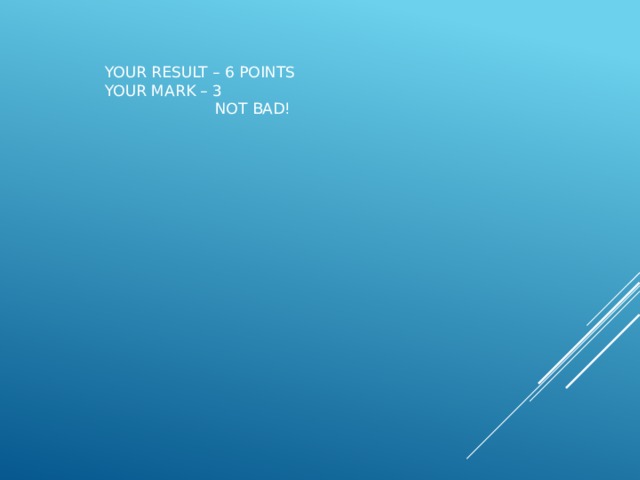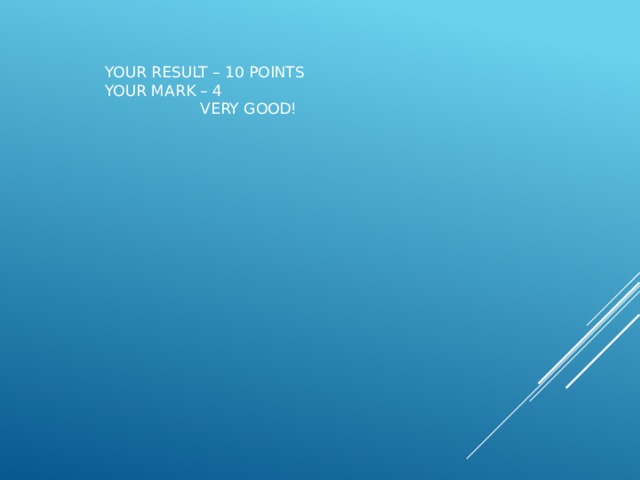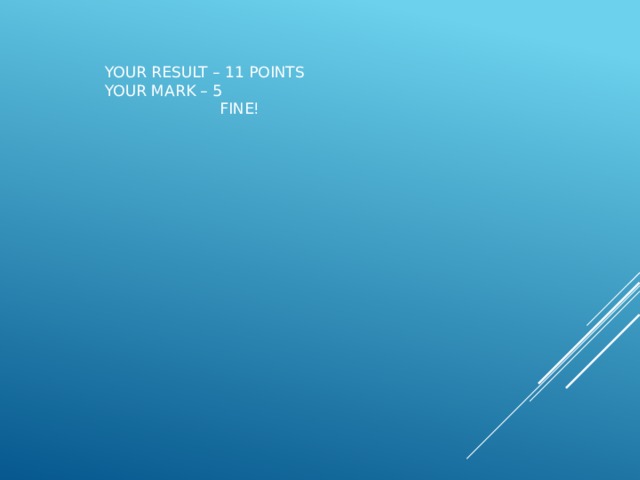Пояснительная записка
к материалу для промежуточной аттестации по английскому языку в 7 классе
Спецификация
Промежуточная аттестация по английскому языку в 7 классе проводится в соответствии с:
-
Федеральным законом РФ от 29.12.12г № 273-ФЗ «Об образовании в Российской Федерации»;
-
Уставом МБОУ «СШ №2»;
-
Учебным планом на 2020/2021 учебный год;
-
Календарным учебным графиком на 2020/2021 учебный год;
Содержание и структура работы для промежуточной аттестации по английскому языку разработаны на основе следующих документов:
-
Федерального государственного образовательного стандарта НОО по английскому языку
-
Примерной программы по английскому языку.
-
Учебно-методический комплекс:
— Учебник (Student`s book). Биболетова М.З., Трубанева Н.Н. Английский язык: Английский с удовольствием (Enjoy English): Учебник английского языка для 7 класса общеобразовательных учреждений. – Обнинск: Титул, 2014
— Книга для учителя. Биболетова М.З., Трубанева Н.Н. Английский язык: Книга для учителя к учебнику английского языка Английский с удовольствием / Enjoy English для 7 класса общеобразовательных учреждений. – Обнинск: Титул, 2014
— Рабочая тетрадь к учебнику Биболетова М.З., Трубанева Н.Н. Английский язык: Рабочая тетрадь к учебнику английского языка Английский с удовольствием / Enjoy English для 7 класса общеобразовательных учреждений. – Обнинск: Титул, 2014
Цель: Промежуточная аттестация по английскому языку ставит своей целью определение уровня усвоения учащимися основных знаний и умений к концу обучения 7 класса.
Условия и порядок выполнения работы: промежуточная аттестация проводится в форме письменных ответов на вопросы, время выполнения работы- 1 учебный час.
Структура и содержание работы: тестовая работа состоит из 30 вопросов, в которые включены лексические и грамматические задания, аудирование, задание по чтению.
Кодификатор элементов содержания
|
Код блока |
Код контролируемого элемента |
Описание элементов содержания, проверяемых в ходе промежуточной аттестации |
|
1 |
Аудирование |
|
|
1.1 |
Задание на соответствие содержанию |
|
|
1.2 |
Задание на понимание услышанного |
|
|
2 |
Грамматическая сторона речи |
|
|
1.1 |
Артикль (неопределенный/определенный/нулевой). |
|
|
1.2 |
Словообразование. |
|
|
1.3. |
Множественное число существительных |
|
|
1.4. |
Степени сравнения прилагательных. |
|
|
1.5 |
Местоимения |
|
|
1.6. |
Употребление временных форм глаголов в Present Simple и Past Simple |
|
|
1.7 |
Модальные глаголы |
|
|
1.8 |
Употребление предлогов. |
|
|
1.9 |
Порядок слов в повествовательных и вопросительных предложениях. |
|
|
3 |
Лексическая сторона речи. |
|
|
1.1 |
Лексические единицы, обслуживающие ситуации в рамках тематики: 1.Участие подростков в соревнованиях. 2. Что ты думаешь о своем будущем? 3. Известные люди. 4. Как мы можем общаться друг с другом?
8.Школьное образование, школьная жизнь, изучаемые предметы и отношение к ним. Образование в англоговорящих странах Школьные друзья. Межличностные отношения в семье, со сверстниками, решение конфликтных ситуаций. 9. Здоровый образ жизни. Спорт |
|
|
1.2. |
Лексическая сочетаемость. |
|
|
4 |
Чтение |
|
|
1.1 |
Задание на понимание прочитанного текста |
|
|
1.2 |
Уметь находить запрашиваемую информацию |
Система оценки выполнения отдельных заданий и работы в целом
Оценка «2» ставится при выполнении менее 50% работы (менее 15 правильных ответов)
Оценка «3» ставится при выполнении 50-69 % работы (16-20 правильных ответов)
Оценка «4» ставится при выполнении 70-89 % работы (21-26 правильных ответов)
Оценка «5» ставится при выполнении 90-100 % работы (26-30 правильных ответов)
Variant 1
-
Listening
PART.1 Прослушайте интервью с Эммой и решите, какие утверждения верны(True), а какие нет(False).
-
Emma’s mother lives in Oxford.
-
Her parents live together.
-
Her brother is twelve years younger than Emma.
-
He doesn’t go to school yet.
-
They often spend days off school together with their father.
PART 2. Послушайте разговор и выберите верные варианты (A, B или C).
-
The man makes a reservation finally for which day?
-
March 20th
-
March 21st
-
March 22nd
-
What kind of room does the man prefer?
-
a non-smoking room
-
a smoking room
-
either one is okay
-
Why doesn’t he want to reserve the suite?
-
It doesn’t have a nice view.
-
It doesn’t come with a sauna bath.
-
It’s too expensive.
-
Including tax, how much is the man’s room?
-
80 dollars
-
88 dollars
-
96 dollars
-
How do you spell the man’s name?
-
Maxner
-
Maexner
-
Mexner
-
Use of English
Part 1. Прочитайте текст и вставьте вместо каждого пропуска нужную грамматическую форму, выбрав её из выпадающего списка.
St. Valentine’s day
St. Valentine’s Day has roots in several different legends that have A____ their way to us through the ages. One of the earliest popular symbols of the day is Cupid, the Roman god of Love, who is represented by the image of a young boy with bow and arrow. Three hundred years after the death of Jesus Christ, the Roman emperors still demanded that everyone believe in the Roman gods. Valentine, a Christian priest, had been thrown in B____ for his teachings. On February 14, Valentine was beheaded, not only because he was a Christian, but also because he had performed a miracle. He supposedly C____ the jailer’s daughter of her blindness. The night before he was executed, he wrote the jailer’s daughter a farewell letter, signing it, “From Your Valentine”. Another legend D____ us that this same Valentine, well-loved by all, wrote notes from his jail cell to children and friends who missed him. February, 14 was also a Roman holiday, held in E____ of a goddess. Young men randomly chose the name of a young girl to escort to the festivities. The custom of choosing a sweetheart on this date spread through Europe in the Middle Ages, and then to the early American colonies. Whatever the odd mixture of origins, St Valentine’s Day is now a day for sweethearts in Russia,too.
A 1) founded 2) found 3) looked 4) met
B 1) danger 2) punishment 3) court 4) prison
C 1) effected 2) cured 3) provided 4) corrected
D 1) tells 2) says 3) speaks 4) talks
E 1) pleasure 2) respect 3) honour 4) feeling
Part II.Прочитайте текст и вставьте вместо каждого пропуска подходящее слово, выбрав его из выпадающего списка. Два слова в списке лишние.
Your Voice
Your Voice, our school newspaper is going to get. involved in supporting wildlife (A)____ .We hope that you will all join in the campaign to save nature. We are going to visit Oak Tree Park to adopt an animal on behalf of the school. You will get the chance to see the animals in their (B)____ environment and then we will all decide which animal to choose. A word of (C)____ though! Remember that you have to be careful around the animals. Mr. Abbey, an expert on (D)____ species is going to give us a talk on what we can all do to make a (E)____ to the environment. We really need you to support this and we hope we can count on you!
1. protection; 2. endangered; 3. could; 4. difference; 5. has taught; 6. natural; 7. warning.
-
Reading
Установите соответствие между текстами и их темами, выбрав тему из выпадающего списка. Используйте каждую тему только один раз. В задании одна тема лишняя.
This text deals with …
1. City attractions.
2. A London cinema.
3. A London theatre.
4. A London street.
5. Nature sights.
6. A London museum.
A. The Lake District, in northwest England, is a small area, but extremely beautiful, with the varied delights of soft hills and woodland and the panoramas of the great lakes. The Lake District is more often visited, both by day tourists and holidaymakers, than any other region of outstanding natural beauty in the British Isles.
B. England’s most ancient northern city lies on the River Ouse in the centre of the Vale of York between the Yorkshire Dales and the North York Moors. It was once the principal town of Yorkshire, and it remains the seat of the Archbishop of York. A child-friendly city, its Viking, Castle and Railway museums have plenty to engage young people as well as adults.
C. Along the north part of Trafalgar Square is the famous National Gallery. Founded in 1824, the gallery has since grown into one of the most outstanding and comprehensive collections in the world, with a list of masters ranging from Leonardo da Vinci and Rembrandt to El Greco and Van Gogh.
D. The London Coliseum famous for its richly decorated interiors was used for variety shows, musical comedies, and stage plays for many years. In 1974 its name was changed to the English National Opera. Today it is used primarily for opera as well as being the London home of the English National Ballet. When not on tour they perform regular seasons throughout the year.
E. The Mall is London’s impressive ceremonial way, a broad tree-lined avenue. The spectacular parade takes place here each June to celebrate the official Birthday of the Sovereign. Queen Elizabeth II rides down the avenue in a horse-drawn carriage. Over 1,000 officers and men are on parade, together with two hundred horses; over two hundred musicians march and play as one.
Answer sheet
Name______________________________
Form_______________________________
Listening
|
1 |
2 |
3 |
4 |
5 |
6 |
7 |
8 |
9 |
10 |
Use of English
Part I.
|
A |
B |
C |
D |
E |
Part II.
|
A |
B |
C |
D |
E |
Reading
|
A |
B |
C |
D |
E |
Ответы к заданиям
Listening
|
1 |
2 |
3 |
4 |
5 |
6 |
7 |
8 |
9 |
10 |
|
T |
F |
F |
F |
T |
b |
a |
c |
b |
b |
Use of English
Part I.
|
A |
B |
C |
D |
E |
|
2. |
4 |
2 |
1 |
3 |
Part II.
|
A |
B |
C |
D |
E |
|
1 |
6 |
7 |
2 |
4 |
Reading
|
A |
B |
C |
D |
E |
|
5 |
1 |
6 |
3 |
4 |
-
Variant 2
-
Listening
PART.1 Прослушайте интервью с Эммой и решите, какие утверждения верны(True), а какие нет(False).
-
Emma’s mother lives in Oxford.
-
Her parents live together.
-
Her brother is twelve years younger than Emma.
-
He doesn’t go to school yet.
-
They often spend days off school together with their father.
PART 2. Послушайте разговор и выберите верные варианты(A, B или C).
-
The man makes a reservation finally for which day?
-
March 20th
-
March 21st
-
March 22nd
-
What kind of room does the man prefer?
-
a non-smoking room
-
a smoking room
-
either one is okay
-
Why doesn’t he want to reserve the suite?
-
It doesn’t have a nice view.
-
It doesn’t come with a sauna bath.
-
It’s too expensive.
-
Including tax, how much is the man’s room?
-
80 dollars
-
88 dollars
-
96 dollars
-
How do you spell the man’s name?
-
Maxner
-
Maexner
-
Mexner
-
Use of English
Part I. Прочитайте текст и вставьте вместо каждого пропуска нужную грамматическую форму, выбрав её из выпадающего списка.
Back to School
This is my usual September routine. My school day begins at 8:30 a.m. I A____ my house late and I have to run. When I B____ at school, the security guards tell me where to go. They are unfriendly. I C____ for my friends and we go to our classroom. We get information about our new classes and the teacher D____ us our schedules. Then we find our classes and meet our teachers. The first day at school is like a big party because everyone E____ their friends again.
A 1) will leave 2) left 3) am leaving 4) leave
B 1) arrive 2) arrives 3) will arrive 4) arrived
C 1) looked 2) were looking 3) look 4) looks
D 1) gives 2) give 3) will get 4) gave
E 1) see 2) saw 3) sees 4) Had seen
Part II.Прочитайте текст и вставьте вместо каждого пропуска подходящее слово, выбрав его из выпадающего списка. Два слова в списке лишние.
Interview with Michael
Interviewer: So, Michael, what have you been doing (A)____ ?
Michael: Well, Peter, the band and I’ve been travelling (B)____ Europe on our latest concert tour.
Interviewer: Really? Tell me, have your (C)____ been buying lots of tickets for the concerts?
Michael: You can say that again! They`ve been booking (D)____ since they went on sale six months ago.
Interviewer: You must be (E)____ !
1. arrangements; 2. recently; 3. tickets; 4. around; 5. fans; 6. concerts; 7. thrilled.
-
Reading
Установите соответствие между текстами и их темами, выбрав тему из выпадающего списка. Используйте каждую тему только один раз. В задании одна тема лишняя.
This text deals with …
1. Country’s brave defenders.
2. A really international place.
3. Governesses of rich children.
4. Textile business links.
5. A nice-sounding building.
6. The initial steps of commerce.
A. Moscow has always been a multicultural city. If we look back at its history, we will see that there were several foreign communities living in Moscow on a permanent basis. We all know about German people inhabiting the banks of the Yauza river, where little Peter, the future tsar of all Russia, ran around, made friends and got his first ideas of learning about ships and fleets. But what do we know about the British community of Moscow? Did it even exist?
B. The first ties between Russia and Britain were formed in the middle of the 16th century in the time of Ivan the Terrible. It was then that some wealthy British merchants founded the Muscovy Company which held a monopoly on trade between Britain and Russia until 1698. The building of its Moscow headquarters was granted to the company by the tsar in 1556 and can be still visited at 4, Varvarka Street, known to us now as The Old English Court.
С. Beginning from the time of Peter the Great, several talented British military men moved to Russia. Many of them served as army generals and navy admirals, defending Russian borders in different wars and battles. Among the most famous ones were Field Marshall James Bruce, Field Marshall Barclay de Tolly and Admiral Thomas Mackenzie, all of them of Scottish origin.
D. In the 18th century, British industrialists made themselves known in Russia. One of the most outstanding figures was Robert McGill, who lived in Moscow and served as an intermediary between Lancashire mill engineers and the Russian cotton industry, and built over 180 mills (cotton factories) in Russia. Robert McGill had a house in Spiridonovka Street and together with his wife Jane was a prominent member of the British community in Moscow.
E. If you talk to Moscow concert musicians who were active between the 1970s and the 1990s, they will tell you of the fantastic acoustics of the “Melodiya” recording studio at 8, Voznesensky Lane, which they lovingly called ‘kirche’, mistakenly thinking it was a German church. This building, designed in the English neo-gothic architectural style, was in fact built in 1885 by Robert McGill and is St. Andrew’s Anglican Church, which was used as a recording studio in Soviet times.
Answer sheet
Name______________________________
Form_______________________________
Listening
|
1 |
2 |
3 |
4 |
5 |
6 |
7 |
8 |
9 |
10 |
Use of English
Part I.
|
A |
B |
C |
D |
E |
Part II.
|
A |
B |
C |
D |
E |
Reading
|
A |
B |
C |
D |
E |
Ответы к заданиям
Listening
|
1 |
2 |
3 |
4 |
5 |
6 |
7 |
8 |
9 |
10 |
|
T |
F |
F |
F |
T |
b |
a |
c |
b |
b |
Use of English
Part I.
|
A |
B |
C |
D |
E |
|
4 |
1 |
3 |
1 |
3 |
Part II.
|
A |
B |
C |
D |
E |
|
2 |
4 |
5 |
3 |
7 |
Reading
|
A |
B |
C |
D |
E |
|
2 |
6 |
1 |
4 |
5 |
-
Variant 3
-
Listening
PART.1 Прослушайте интервью с Эммой и решите, какие утверждения верны(True), а какие нет(False).
-
Emma’s mother lives in Oxford.
-
Her parents live together.
-
Her brother is twelve years younger than Emma.
-
He doesn’t go to school yet.
-
They often spend days off school together with their father.
PART 2. Послушайте разговор и выберите верные варианты(A, B или C).
-
The man makes a reservation finally for which day?
-
March 20th
-
March 21st
-
March 22nd
-
What kind of room does the man prefer?
-
a non-smoking room
-
a smoking room
-
either one is okay
-
Why doesn’t he want to reserve the suite?
-
It doesn’t have a nice view.
-
It doesn’t come with a sauna bath.
-
It’s too expensive.
-
Including tax, how much is the man’s room?
-
80 dollars
-
88 dollars
-
96 dollars
-
How do you spell the man’s name?
-
Maxner
-
Maexner
-
Mexner
-
Use of English
Part I.Прочитайте текст и вставьте вместо каждого пропуска нужную грамматическую форму, выбрав её из выпадающего списка.
Robin Hood
Robin Hood is a legendary hero who lived in Sherwood Forest, in Nottingham, with his band of followers. Stories about him and his adventures began to A____ in the fourteenth century.
Everyone knows that Robin Hood robbed the rich to give to the poor. He chose to be an outlaw, that is, someone B____ lives “outside the law”, but he had his own ideas of right and wrong. He fought against injustice, and tried to give C____people a share of the riches owned by people in authority and the Church. He had many D____ — he was a great sportsman, a brave fighter, and was very good with his bow and arrow.
He dressed in green, lived in the forest with his wife, Maid Mary, and his men. For food, they killed the King’s deer, and many days were spent eating, drinking, and playing games. He robbed the rich by capturing them as they E____ through the forest and inviting them to eat with him. During the supper, someone looked in their bags to see how much money they had. When it was finished, Robin asked them to pay for the meal, and of course, he knew how much to ask for! His main enemy was the Sheriff of Nottingham, who was always trying to capture Robin but never managed to do it. Some stories say that he probably killed Robin by poisoning him. In his dying moments, he shot a final arrow from his famous bow, and asked his men to bury him where the arrow landed.
A 1) become 2) look 3) move 4) appear
B 1) which 2) who 3) what 4) whose
C 1) ordinary 2) usual 3) normal 4) typical
D 1) aspects 2) standards 3) qualities 4) quantities
E 1) entered 2) arrived 3) crossed 4) traveled
Part II.Прочитайте текст и вставьте вместо каждого пропуска подходящее слово, выбрав его из выпадающего списка. Два слова в списке лишние.
Tom’s New Love
Walking past Jeff Thatcher’s house, Tom saw a new girl in the (A)____. She had long yellow hair and blue eyes and was dressed in a white (B)____ dress. She was the most (C)____ creature Tom had ever seen. A certain Amy Lawrence immediately vanished out of his (D)____ ; he thought he loved her more than anything else in the world — in fact, he had only won her a (E)____ ago. Then, for seven days, he had been the happiest boy alive.
-
week; 2. heart; 3. incredible; 4. garden; 5. summer; 6. towards; 7. beautiful.
-
Reading
Установите соответствие между текстами и их темами, выбрав тему из выпадающего списка. Используйте каждую тему только один раз. В задании одна тема лишняя.
This text deals with …
1. Soapy Plates
2. Enjoyable Ads
3. Where is the Fog?
4. Main Tourist Attraction
5. Traditional Measures
6. Who Should Do It?
A. An Italian boy, who is in Britain for the first time, talked about the weather, “I can’t understand it. I’ve been here for over a week and I still haven’t seen any fog!”
B. A Japanese student from Tokyo said, “I’ve been in Britain since April and have been living with a British family. I’ve noticed one big difference between British and Japanese families. British men do jobs like cooking, washing up and ironing. They’re jobs which I’ve never seen Japanese men do. They think it’s women’s work. But I don’t agree with it!”
C. A German student at a language school in Oxford said, “I thought Britain was a modern European country — you’ve been in the EEC for years now. So why do you still use miles,Or pints and pounds instead of kilometres, litres and kilos? And why do you still drive on the wrong side of the road?”
D. A Danish girl who works as an au pair in Liverpool said, “I came to Britain a month ago. I’ve noticed one very strange thing here. After British people have washed the dishes, they never rinse them. They just take them out of the dirty, soapy water and leave them to dry!”
E. A Swedish girl said, “I’ve watched a lot of television since I arrived two weeks ago. British television’s brilliant! But the “programmes” which I’ve enjoyed most are the advertisements. They’re very funny or very clever, or both. Back home in Sweden we don’t have any TV advertisements at all!”
Answer sheet
Name______________________________
Form_______________________________
Listening
|
1 |
2 |
3 |
4 |
5 |
6 |
7 |
8 |
9 |
10 |
Use of English
Part I.
|
A |
B |
C |
D |
E |
Part II.
|
A |
B |
C |
D |
E |
Reading
|
A |
B |
C |
D |
E |
Ответы к заданиям
Listening
|
1 |
2 |
3 |
4 |
5 |
6 |
7 |
8 |
9 |
10 |
|
T |
F |
F |
F |
T |
b |
a |
c |
b |
b |
Use of English
Part I.
|
A |
B |
C |
D |
E |
|
4. |
2. |
1 |
3 |
4 |
Part II.
|
A |
B |
C |
D |
E |
|
4. |
5 |
7 |
2 |
1 |
Reading
|
A |
B |
C |
D |
E |
|
3 |
6 |
5 |
1 |
2 |
Variant 4
I. Listening
PART.1 Прослушайте интервью с Эммой и решите, какие утверждения верны(True), а какие нет(False).
-
Emma’s mother lives in Oxford.
-
Her parents live together.
-
Her brother is twelve years younger than Emma.
-
He doesn’t go to school yet.
-
They often spend days off school together with their father.
PART 2. Послушайте разговор и выберите верные варианты(A, B или C).
-
The man makes a reservation finally for which day?
-
March 20th
-
March 21st
-
March 22nd
-
What kind of room does the man prefer?
-
a non-smoking room
-
a smoking room
-
either one is okay
-
Why doesn’t he want to reserve the suite?
-
It doesn’t have a nice view.
-
It doesn’t come with a sauna bath.
-
It’s too expensive.
-
Including tax, how much is the man’s room?
-
80 dollars
-
88 dollars
-
96 dollars
-
How do you spell the man’s name?
-
Maxner
-
Maexner
-
Mexner
II. Use of English
Part I.Прочитайте текст и вставьте вместо каждого пропуска нужную грамматическую форму, выбрав её из выпадающего списка.
Living in a city
Living in a city has both advantages and disadvantages. On the plus side, it is often easier to find job, and there is usually a choice of public transport, so you don’t need to own a car. Also, there are a lot of interesting things to A____ and places to see. For example, you can eat in good restaurants, visit museums, and go to the theatre and to concerts. What is more, when you want to relax, you can usually find a park where you can B____ the ducks or just sit on a park bench and read a book. All in all, city life is full of bustle and variety and you need never feel really bored.
However, for every plus there is a minus. For one thing, you might have a job, but unless it is very well-paid, you will not be able to C____ many of the things that there are to do, because living in a city is often quite expensive. It is particularly difficult to find good, cheap accommodation. What is more, public transport is sometimes crowded and dirty, particularly in the rush D____ , and even the parks can become very crowded, especially on Sundays when it seems that every city dweller is looking E____ some open space and green grass.
In conclusion, I think city life can be particularly appealing to young people, who like the excitement of the city and don’t mind the noise and pollution. However, many people, when they get older, and particularly when they have young children, often prefer the peace and fresh air of the countryside.
A 1) make 2) do 3) create 4) produce
B 1) eat 2) feed 3) provide 4) give
C 1) make 2) spend 3) bear 4) afford
D 1) second 2) minute 3) hour 4) day
E 1) for 2) after 3) at 4) up
Part II. Прочитайте текст и вставьте вместо каждого пропуска подходящее слово, выбрав его из выпадающего списка. Два слова в списке лишние.
The Amazon Rainforest
The Amazon Rainforest is a large beautiful forest in Brazil, South America. It (A)____ at the mouth of the Amazon River. The Amazon River is the (B)____ river in South America. It (C)____ between the Andes Mountain Ranges and the Atlantic Ocean.
The Amazon Rainforest is a very beautiful place. A wide variety of animals, birds and insects live in it. There (D)____ also many trees and plants. Today the forest (E)____ a very serious problem. People are cutting too many of its trees. As a result, much of its animal and plant life is disappearing forever. Scientists say that the whole world is in danger because of the destruction of the rainforests.
1. lies; 2. has; 3. longest; 4. are; 5. scientist; 6. argument; 7. runs.
III. Reading
Установите соответствие между текстами и их темами, выбрав тему из выпадающего списка. Используйте каждую тему только один раз. В задании одна тема лишняя.
This text deals with …
1. Polite Neighbours
2. A Working TV set
3. Night Visitors
4. Anxious Night
5. Ready to Defend Myself
6. Strangers in the Garden
A. Last night, at about three o’clock in the morning, I heard a strange noise downstairs. I got out of bed and put on my dressing gown. With my heart beating fast, I slowly went to the top of the stairs. It sounded like there were people talking in the kitchen.
B. I didn’t know what to do. Finally, I decided to go downstairs. I made my way quietly down the stairs and listened at the kitchen door. A man asked: “Did you kill him?” and a woman replied: “Yes, I shot him.” Then the man asked: ’’Why did you do that?” Suddenly I realised that there were not really any people in the kitchen. It was just the TV. But why did it turn itself on in the middle of the night?
C. While I was standing in the kitchen wondering about the TV, I looked out of the window. It was dark, but I could see a figure outside. Someone was walking slowly across the garden! He whispered something. He was talking to another person! What were they doing in my garden?
D. I was wondering what to do when they started walking towards the kitchen window. They were coming towards me! I didn’t know what to do so I grabbed a knife and waited. They were getting closer and closer. I was so frightened. They came right up to the window, and I saw their faces. It was my neighbours, Anna and Larry!
E. They obviously were not trying to break into my house, so why were they talking in my garden in the middle of the night? I opened the kitchen door and Anna and Larry came in. They sat down, and I made them both a cup of coffee. This is what Anna told me: “We were sleeping in our bedroom when we heard a loud noise coming from your kitchen. So Alan and I decided to investigate. We came down to your garden, but couldn’t see any lights on.
Answer sheet
Name______________________________
Form_______________________________
Listening
|
1 |
2 |
3 |
4 |
5 |
6 |
7 |
8 |
9 |
10 |
Use of English
Part I.
|
A |
B |
C |
D |
E |
Part II.
|
A |
B |
C |
D |
E |
Reading
|
A |
B |
C |
D |
E |
Ответы к заданиям
Listening
|
1 |
2 |
3 |
4 |
5 |
6 |
7 |
8 |
9 |
10 |
|
T |
F |
F |
F |
T |
b |
a |
c |
b |
b |
Use of English
Part I.
|
A |
B |
C |
D |
E |
|
2 |
2 |
4 |
3 |
1 |
Part II.
|
A |
B |
C |
D |
E |
|
1 |
3 |
7 |
4 |
2 |
Reading
|
A |
B |
C |
D |
E |
|
4 |
2 |
6 |
5 |
3 |
Form
__________ Student
__________________
I.
READING.
Read
the text and choose the right variant in the sentences after it.
The New Zealand Kiwi
This
strange bird is New Zealand’s national symbol. Everywhere in the world, Kiwi is
New Zealand, or a New Zealander. New Zealanders also like to call themselves
Kiwis.
The
Kiwi (bird) got its name after its shrill call — «kee-wee kee-wee».
It can’t see well, and although it has wings, it cannot fly. Kiwis live in
forests or wet places and feed on insects, worms, snails, and berries. It is
unusual in at least two things. First, it is the only bird in the world that
has its nostrils1 at the end of its long beak to find food and sense
danger. Second, the female kiwi has the largest egg, in proportion to its body
size. Kiwis are as big as chickens, but their eggs are almost as big as those
of ostriches! There are several species of kiwi spread over the North and South
Islands of New Zealand.
The
kiwi looks very much like kiwifruit — the brown furry fruit with the green
flesh. Kiwifruit comes originally from China, and in fact its original name was
Chinese gooseberry2. Sometime in the 1960s, the kiwifruit
farmers in New Zealand decided to market the fruit overseas, but decided to give
them another name. To help identify the fruit with New Zealand, they chose the
name kiwifruit. Some people call kiwifruit kiwis, but this is
incorrect. New Zealanders especially find this very wrong! A kiwi is a
bird or a human New Zealander; but the fruit has different names — kiwifruit
or Chinese gooseberry.
While
it’s not easy to see the real kiwi bird, the kiwi as a symbol is everywhere: on
stamps and coins, on all sorts of products, in the toy shops, on flags,
everywhere, all over the world.
1) People
think that the kiwi bird is strange because it … .
a)
has a long tail b) has too long wings c) can’t fly
2) The
name of the bird comes from … .
a)
its size b) its cry c) New Zealand fruit
3) Kiwis
are really unusual because they … .
a)
look like ostriches b) are as big as ostriches
c) lay eggs as big as those of ostriches
4) New
Zealanders call themselves … .
a)
kiwifruit b) gooseberries c) kiwis
5) The
kiwifruit originates from … .
a)
China b) Australia c) New Zealand
1
nostrils [ʹnɒstrəlz] — ноздри
2
gooseberry [ʹɡʊzbərɪ] — крыжовник
II.
GRAMMAR.
Choose
the right variant for each sentence.
1.
It
all day. When will it stop?
a)
has
been raining
b)
has
rained
2.
It
is noon. You on the computer for two hours
already.
a)
have
been working
b)
have
worked
3.
We
to Australia. But John there
all his life.
a)
have
never been, has lived
b)
have
never been, has been living
4.
Nancy
in Canada this year.
a)
travelled
b)
has
travelled
5.
It’s
the first time Mary and Paul to the sea resort in
Spain.
a)
have
gone
b)
went
III.
VOCABULARY.
Complete
the sentences with the correct words.
1)
Have
you translated the article (yourself/yourselves)?
2)
The
first bird in the picture was an owl, (another/the other) was a magpie.
3) Unfortunately,
Michael is not (between/among) my best friends.
4) Mr
Parson is interested in our planet. He has a good collection of books about
(earth/land).
5) Paul
decided to take (up/down) swimming and began going to a good swimming pool.
IV.
WORD BUILDUNG. Form
new words and complete the sentences.
|
1) 2) |
end enjoy |
|
3) |
fashion |
|
4) |
pleasant |
|
5) |
happy |
7 класс – Ключи.
Максимум = 20 баллов.
Ответы к заданию I: 1c, 2b, 3c, 4c, 5a.
Ответы к заданию II: 1a, 2a, 3b, 4b, 5a.
Ответы к заданию III:
1-yourself
2-the other
3-among
4-earth
5-up
Ответы к заданию IV:
1 endless
2 enjoyment
3 fashionable
4 unpleasant
5 happily.
|
5 |
4 |
3 |
2 |
|
18 |
15 – 17 |
10 – 14 |
0 |
Диагностическая работа по английскому за 7 класс
Пояснительная записка
Диагностическая работа по английскому языку за 7 класс разработана на
основе программы основного общего образования по иностранным языкам
(английский язык), УМК Афанасьева, Михеева «Английский язык. 7 класс»
для школ с углубленным изучением английского языка.
Работа проводится с целью определения уровня освоения учащимся 7 класса
предметного содержания курса английского языка и выявления элементов
содержания, вызывающих наибольшие затруднения.
Цель: проверить усвоение изученного материала, умение использовать
межпредметные знания и метапредметные умения на практике, объективно
определить степень развития языковых коммуникативных умений учащихся,
проанализировать причины отставания, продиагностировать потенциал
учащихся.
Часть первая. Аудирование.
При выполнении этой части проверяются:
— умения: понимание основного содержания прослушанного текста (Базовый
уровень сложности).
Часть вторая. Чтение.
При выполнении этой части проверяются:
— умения: понимание основного содержания прочитанного текста и
устанавливать соответствия между микротекстами и заголовками (Базовый
уровень сложности).
Часть вторая. Лексика и Грамматика.
Проверка уровня сформированности лексических и грамматических
навыков у учащихся по основным разделам грамматики.
При выполнении этого задания проверяются
— умения: понимать и использовать лексические единицы по пройденным
темам;
— умения: применять способы словообразования в коммуникативно—значимом
контексте;
— умения: оперировать лексическими единицами в коммуникативно—значимом
контексте.
— умения: правильно применять грамматические правила.
На выполнение работы отводится 60 минут.
Критерии оценивания
Промежуточная аттестация проводится в форме тестирования. Тест состоит из
трех частей:
Проверяемые навыки и
умения
Критерии оценки выполнения заданий
Диагностическая работа по английскому за 7 класс
ФИО___________________________________________
1) Fill in Present Simple, Present Continuous, Past Simple, Present Perfect.
We (1) are (be) at the party today. Today Nick (2) __________ (have) a birthday.
Many guests (3) _________ (already/ come) to his party. Everybody (4) _________
(be) happy. Lisa (5) _________ (dance) with Mark. Tina (6) ________ (hold) some
drinks and ice-cream. Barbara and Tina (7) _________ (talk) about the party. They
(8) _________ (buy) beautiful dresses for the party yesterday and now they (9)
___________ (discuss) the prices for the clothes. Michael (10) ________ (stand) at
the table. He (11) _________ (not/ eat) anything yet and he (12) _______ (be)
hungry. He (13) _________ (get) up three hours ago and he (14) __________
(not/have) time for lunch yet. Nick`s parents (15) _________ (go) to visit their
friends. They (16) ___________ (not /come) back yet.
So today Nick and his friends (17) ___________ (celebrate) his birthday. “Many
happy returns of the day, Nick!”
2) Fill in the, a or an where necessary.
‘Do you see (1) ____ man standing near (2) ____ door? He works as (3) ____
assistant in (4) ____ same shop as I do. Well, I saw him the other day and he was
driving (5) ____ big red Porsche. And do you see (6) ____ expensive clothes he`s
wearing? Where does he get (7) ____ money to pay for it all? (8) ____ month ago
he hadn`t got (9) ____ penny. I told you about (10) ____ burglary that we had at (11)
____ shop, didn`t I? Do you think I should go to (12) ____ police?
3) Fill in the gaps with the correct preposition.
________ time to time, he goes to the library to get new information about books.
The tiles fell from the roof and broke _______ pieces.We often go to London ______
car. The children are completely _________ control since their father left. «I can’t
talk to you. I’m ______ a hurry. We were in Spain _____ Christmas. We are sure
_______ him. What has happened _________ Mr. Green. The workers banded
together to go ________ strike and fight the company. _______ his relief he
recovered from the illness.
4) Read the sentences about a teacher. Complete the second sentence so that it
means the same as the first. Use no more than three words.
Lina`s mother taught her how to read.
Lina was taught how to read by her mother.
When she was a child she dreamed of opening her own school.
When she was a child she used 2. __________ of opening her own school.
She first worked as a teacher at the age of twenty.
She was twenty 3. ________________ worked as a teacher.
She tries to maintain discipline at the lessons.
She is very good 4. ______________ at the lessons.
They think she will be headmistress one day.
It 5.________________ she will be headmistress one day.
5) Choose the correct answer.
1. This is the woman _____ daughter is a famous model.
A. who B. which C. whose
2. ______ annoying children!
A. what B. what a C. what an
3. You may bring _______ to the party.
A. somebody B. nobody C. anybody
4. _______ the fog, the plane came down safely.
A. although B. in spite of C. despite
5. He has no job and _______ to live.
A. anywhere B. nowhere C. somewhere
6. ______ beautiful the girl is.
A. how B. what C. what an
7. Do you know the reason _____ he did it?
A. how B. why C. which
8. ________ John doesn’t speak English well, he understands some English songs.
A. despite B. in spite of C. although
9. Is that the café _____ the writers hang out?
A. where B. that C. which
6) Use the word given in capitals to form a word that fits in the gaps.
1. I`m sorry about my ______ . I didn`t want to hurt you. …BEHAVE
2. The trip was quite __________ in spite of the weather. ……. ENJOY
3. Can you think of a __________ to the problem? ……. SOLVE
4. Animals could be _________ in supporting mental health. …….USE
5. It was _______ of you to ask about his girlfriend. You know she`s left him. ……..
TACT
6. Sandra is not ________ for this job, she`s too reserved. ……. SUIT
7. He wouldn`t be so _______ in the morning if he went to bed earlier. ….SLEEP
8. Charles Rolls was known as a keen racing _______. ….. MOTOR
9. Agatha Christie was found nine days after her ________. …..APEAR
По теме: методические разработки, презентации и конспекты
Утсная переводная аттестация 5 класс
Данная работа содержит материал по устной переводной аттестации, который можно использовать в конце учебного года, когда в школах проходит контроль говорения….
устная переводная аттестация 6 класс
Данный материал можно использовать в качестве устной проверки знаний учащихся за год на уроках в 6 классе для школ с углублённым изучением иностранных языков.Весь материал выстроен по УМК Афанасьевой …
Устная переводная аттестация 8 класс
Данный материао можно использовать на уроках в 8 классе в качестве устной проверки знаний за год. Весь материал выстроен по УМК Афанасьевой и Михеевой для школ с углублённым изучением иностранных язык…
Устная переводная аттестация 6 класс
Данный материал можно использовать в конце года в качестве проверки знаний учащихся по темам, пройденным в течение года, по УМК О.В.Афанасьевой и И.В.Михеевой.Весь материал написан в формате ГИА (карт…
Переводная аттестация за курс 8 класса
Переводная аттестация по литературе за курс 8 класса в традиционной устной форме способствует развитию монологической речи, совершенствованию навыков анализа худежественного текста, умению выразительн…
Устный переводной экзамен для 8 класса
Демоверсия устного переводного экзамена по английскому языку для обучающихся 8 класса. Материал монологического высказывания составлен на основе лексического и грамматического материала учебника «…
Годовая контрольная работа за 7 класс 1 вариант
1. Read the text and match its paragraphs with the titles. There are 6 titles but only 5 paragraphs. There is one title you don’t have to use.
a) Land Without Trees
b) Problem of Big Cities
c) Dangerous Waters
d) Toxic Food
e) Problems Important for Everyone
f) Animals in Danger
1. The word “environment” means what is around us. People who live in big industrial centers, cities and towns live in a town environment. For others their environment is countryside. Everybody who lives in towns or in the country breathes air, drinks water, uses soil which should be clean. But are they really clean?
2. The water in the oceans, seas and rivers has become polluted in many places. If people drink this water, they can get ill or even die. People use oceans and seas as big dumps and pour industrial and domestic waste into them. And so fish become toxic. It is very dangerous for people to eat such fish. Water birds leave places with toxic water. A lot of trees on the coast die, too.
3. The things we eat are not always healthy as fruit and vegetables can grow on polluted soil and become dangerous too. The meat we get from sheep and cows can be bad for our health if these sheep and cows eat grass that grows on polluted land.
4. People cut down trees and many birds and animals can’t have homes in their usual places and they begin dying out. If the situation doesn’t change, soon we shall live in a very different world — a world without a number of species we know now.
5. Nowadays people feel that it is more difficult to breathe: in big cities the air has become badly polluted. Most of the pollution comes from cars and buses. Old people and little children feel bad and get ill because of the polluted air.
2.Complete the sentences with the derivatives of the words on the right
|
|
You can wear this watch playing volleyball. This watch is not … |
break |
|
|
This is a ….radio station. |
move |
|
|
Well, this is a …. surprise! |
please |
|
|
You will live long and … |
happy |
|
|
I am absolutely sure they can … do it. |
easy |
|
|
Jane sells goods at the market. I can say she is a … . |
sell |
3.Complete the sentences with the verbs in the right forms.
-
That morning I ( get) up late.
-
My aunt (grow) very unusual flowers in her garden lately.
-
She (go) to the Black Sea three years ago.
-
She already (forget) about our plan.
-
We (wait) for you for half an hour.
4. You have received an email message from your English-speaking pen-friend Betty:
From: Betty@mail.uk
To: Russian_friend@oge.ru
Subject: Time out
… Greeting from the UK! This is a fantastic place, but it’s raining now. I’m wearing jeans and a jacket and I carry my umbrella everywhere!
London is a beautiful city. I’m staying at a nice hotel in the city centre. I go sightseeing every day. At the moment, I’m sitting in a cafe and drinking coffee. In the evening I go out.
Do you go to the theatre or to the cinema? What do you usually do after school?
Write a message to Betty and answer her questions. Write 60–80 words.
Remember the rules of letter writing.
Годовая контрольная работа за 7 класс 2 вариант
1. Read the text and match its paragraphs with the titles. There are 6 titles but only 5 paragraphs. There is one title you don’t have to use.
a) Kinds of Dictionaries
b) How Words Sound
c) How Words Appear and Develop
d) Why We Use Dictionaries
e) What Words Tell Us
f) The Structure of Dictionaries
How to Use Dictionaries
1.All kinds of information are waiting for you in dictionaries. You can find out what the words mean, how to spell them, how to pronounce them and where they come from. So when we look a word up we should know where and how to find the information we need.
2.There really isn’t anything difficult about learning how dictionaries work. The most popular kinds of dictionaries are monolingual and bilingual. It is very important for every English learner to be able to use monolingual English dictionaries.
3.This is what you need to know if you work with a monolingual dictionary. The words you are looking up are in heavy black, blue or red letters. These words with the information about them are word entries. The entries follow each other alphabetically from A to Z.
4. After the word many dictionaries tell you how to pronounce it. They do it with the help of transcriptions. They also tell you to what part of speech the word belongs. For example, n (noun), adj (adjective).
5. Then comes the information about the meaning of the word. For example, baboon [bəˈbu:n] a large monkey that has a face like a dog’s.
Many words have more than one meaning. Dictionaries give different meanings under numbers. For example, hand [hænd] n 1. The end part of the arm 2. A part of a clock that shows hours. Usually the first meaning is the meaning which people use most often. Some dictionaries give you examples of how to use words in sentences. Language learners find it very helpful because such examples make a word’s meaning clearer.
6.A lot of words have interesting stories to tell us. Some of them come to the English language from other languages. Words sometimes change their meanings. There are dictionaries which tell you about these facts. So dictionaries are not only useful, they can become great reading.
2. Complete the sentences with the derivatives of the words on the right
|
|
The football match between the two schools was not easy. Who was the…? |
win |
|
|
What can you say about our Christmas ….s? |
decorate |
|
|
Jennie was a ….little girl. |
love |
|
|
Wooden chairs are not always …. |
comfort |
|
|
Jack always helps me in the kitchen. He is a good cook and a good … . |
bake |
|
|
Yesterday we went to the circus. It was such an …visit. |
enjoy |
3. Complete the sentences with the verbs in the right forms.
-
Have you ever (see) a lizard?
-
I (wait) for you since 3 p.m. I’m glad you have come at last.
-
Your hands are dirty. What you (do)?
-
The other day they (leave) for Brazil.
-
Lily is very quiet today. She doesn’t want to play with the other children. I think she (come) down with a cold.
4. You have received an email message from your English-speaking pen-friend Betty:
From: Betty@mail.uk
To: Russian_friend@oge.ru
Subject: Time out
… Greeting from France! This is a fantastic place, but it’s raining. I’m wearing jeans and a jacket and I carry my umbrella everywhere!
Paris is a beautiful city. I’m staying at a nice hotel in the center. I go sightseeing every day. At the moment, I’m sitting in a cafe and drinking coffee. In the evening I go out.
Do you go to the theatre or to the cinema? What do you usually do after school?
Write a message to Sally and answer her questions. Write 60–80 words.
Remember the rules of letter writing.
Ответы 7 класс.
|
1 вариант |
2 вариант |
||
|
1 задание Чтение |
1 заданиеЧтение |
||
|
|
e |
|
d |
|
|
c |
|
a |
|
|
d |
|
f |
|
|
f |
|
b |
|
|
b |
|
e |
|
|
— |
|
c |
|
2 задание |
2 задание |
||
|
1 |
breakable |
1 |
winner |
|
2 |
movable |
2 |
decoration |
|
3 |
pleasant |
3 |
lovely |
|
4 |
happily |
4 |
comfortable |
|
5 |
easily |
5 |
baker |
|
6 |
seller |
6 |
enjoyable |
|
3 задание |
3 задание |
||
|
1 |
got |
1 |
seen |
|
2 |
has grown |
2 |
have been waiting |
|
3 |
went |
3 |
have done |
|
4 |
has forgotten |
4 |
left |
|
5 |
have been waiting |
5 |
has come |
|
4 задание-письмо |
4 задание-письмо |
FINAL TEST
О.В. Афанасьева, И. В. Михеева
7 класс
Учитель английского языка: Слуцкая Гаталья Сергеевна
1. __ Black Sea, __Africa, __ USA, __Red Square
The/-/the/-
-/-/the/-
The/the/-/-
-/the/the/-
0
2. Have we got _______ time? –We’ve got _________ time. But John doesn’t have _____ time.
Many/ a lot of/ any
Much/ a lot of/ any
Much/ a lot of/ some
a lot of/ any/ much
0
2. Have we got _______ time? –We’ve got _________ time. But John doesn’t have _____ time.
Many/ a lot of/ any
Much/ a lot of/ any
Much/ a lot of/ some
a lot of/ any/ much
1
3. Do you want __________to eat? Open the box! There is _________ in it. I’ve got _________ to do this evening.
nothing something anything
something
anything
nothing
anything something nothing
anything anything
nothing
0
3. Do you want __________to eat? Open the box! There is _________ in it. I’ve got _________ to do this evening.
nothing something anything
something
anything
nothing
anything something nothing
anything anything
nothing
1
3. Do you want __________to eat? Open the box! There is _________ in it. I’ve got _________ to do this evening.
nothing something anything
something
anything
nothing
anything something nothing
anything anything
nothing
2
4. Repin is a famous Russian _____. (paint) The sky is not blue. It is _______. (cloud) Mr Frost looked at us_______. (cold)
paint
painter
cloudy
cloudly
coldly
coldly
painter
painter
cloudly
cloudy
coldy
coldly
0
4. Repin is a famous Russian _____. (paint) The sky is not blue. It is _______. (cloud) Mr Frost looked at us_______. (cold)
paint
painter
cloudy
cloudly
coldly
coldly
painter
painter
cloudly
cloudy
coldy
coldly
1
4. Repin is a famous Russian _____. (paint) The sky is not blue. It is _______. (cloud) Mr Frost looked at us_______. (cold)
paint
painter
cloudy
cloudly
coldly
coldly
painter
painter
cloudly
cloudy
coldy
coldly
2
4. Repin is a famous Russian _____. (paint) The sky is not blue. It is _______. (cloud) Mr Frost looked at us_______. (cold)
paint
painter
cloudy
cloudly
coldly
coldly
painter
painter
cloudly
cloudy
coldy
coldly
3
5. The teacher is the _________. (tall) The film is ___________________ than the book. (interesting)
tallest
most interesting
tallest
more interesting
taller
tallest
more interesting
interestinger
0
5. The teacher is the _________. (tall) The film is ___________________ than the book. (interesting)
tallest
most interesting
tallest
more interesting
taller
tallest
more interesting
interestinger
1
5. The teacher is the _________. (tall) The film is ___________________ than the book. (interesting)
tallest
most interesting
tallest
more interesting
taller
tallest
more interesting
interestinger
2
5. The teacher is the _________. (tall) The film is ___________________ than the book. (interesting)
tallest
most interesting
tallest
more interesting
taller
tallest
more interesting
interestinger
3
5. The teacher is the _________. (tall) The film is ___________________ than the book. (interesting)
tallest
most interesting
tallest
more interesting
taller
tallest
more interesting
interestinger
4
6. It is ______ pen. This pen is _____.
your/yours
my/ me
her /her
he/ his
0
6. It is ______ pen. This pen is _____.
your/yours
my/ me
her /her
he/ his
1
6. It is ______ pen. This pen is _____.
your/yours
my/ me
her /her
he/ his
2
6. It is ______ pen. This pen is _____.
your/yours
my/ me
her /her
he/ his
3
6. It is ______ pen. This pen is _____.
your/yours
my/ me
her /her
he/ his
4
6. It is ______ pen. This pen is _____.
your/yours
my/ me
her /her
he/ his
5
7. I see a lot of _________. (sheep) I have a lot of ________ . (toy) My little brother has three white __. (mouse)
sheeps
sheep
toys
toys
mice
mouses
sheeps
sheep
toys
toys
mouses
mice
0
7. I see a lot of _________. (sheep) I have a lot of ________ . (toy) My little brother has three white __. (mouse)
sheeps
sheep
toys
toys
mice
mouses
sheeps
sheep
toys
toys
mouses
mice
1
7. I see a lot of _________. (sheep) I have a lot of ________ . (toy) My little brother has three white __. (mouse)
sheeps
sheep
toys
toys
mice
mouses
sheeps
sheep
toys
toys
mouses
mice
2
7. I see a lot of _________. (sheep) I have a lot of ________ . (toy) My little brother has three white __. (mouse)
sheeps
sheep
toys
toys
mice
mouses
sheeps
sheep
toys
toys
mouses
mice
3
7. I see a lot of _________. (sheep) I have a lot of ________ . (toy) My little brother has three white __. (mouse)
sheeps
sheep
toys
toys
mice
mouses
sheeps
toys
sheep
mouses
toys
mice
4
7. I see a lot of _________. (sheep) I have a lot of ________ . (toy) My little brother has three white __. (mouse)
sheeps
sheep
toys
toys
mice
mouses
sheeps
sheep
toys
toys
mouses
mice
5
7. I see a lot of _________. (sheep) I have a lot of ________ . (toy) My little brother has three white __. (mouse)
sheeps
sheep
toys
toys
mice
mouses
sheeps
toys
sheep
mouses
toys
mice
6
8. a)You ________ play in the street. It’s dangerous. b)If you want to come to school at 8, you _____ get up at 7. c)_____I go out, teacher? d) ____ I use your mobile, mum?
mustn’t
should
may
can
must
should
may
can
0
mustn’t
must
may
may
must
must
may
can
8. a)You ________ play in the street. It’s dangerous. b)If you want to come to school at 8, you _____ get up at 7. c)_____I go out, teacher? d) ____ I use your mobile, mum?
mustn’t
should
may
can
must
should
may
can
1
mustn’t
must
may
may
must
must
may
can
8. a)You ________ play in the street. It’s dangerous. b)If you want to come to school at 8, you _____ get up at 7. c)_____I go out, teacher? d) ____ I use your mobile, mum?
mustn’t
should
may
can
must
should
may
can
2
mustn’t
must
may
may
must
must
may
can
8. a)You ________ play in the street. It’s dangerous. b)If you want to come to school at 8, you _____ get up at 7. c)_____I go out, teacher? d) ____ I use your mobile, mum?
mustn’t
should
may
can
must
should
may
can
3
mustn’t
must
may
may
must
must
may
can
8. a)You ________ play in the street. It’s dangerous. b)If you want to come to school at 8, you _____ get up at 7. c)_____I go out, teacher? d) ____ I use your mobile, mum?
mustn’t
should
may
can
must
should
may
can
4
mustn’t
must
may
may
must
must
may
can
8. a)You ________ play in the street. It’s dangerous. b)If you want to come to school at 8, you _____ get up at 7. c)_____I go out, teacher? d) ____ I use your mobile, mum?
mustn’t
should
may
can
must
should
may
can
5
mustn’t
must
may
may
must
must
may
can
8. a)You ________ play in the street. It’s dangerous. b)If you want to come to school at 8, you _____ get up at 7. c)_____I go out, teacher? d) ____ I use your mobile, mum?
mustn’t
should
may
can
must
should
may
can
6
mustn’t
must
may
may
must
must
may
can
8. a)You ________ play in the street. It’s dangerous. b)If you want to come to school at 8, you _____ get up at 7. c)_____I go out, teacher? d) ____ I use your mobile, mum?
mustn’t
should
may
can
must
should
may
can
7
mustn’t
must
may
may
must
must
may
can
9. Bob ___s he likes swimming. Bob ___s me he likes swimming. James and Ann often ____ about music. Hello! Could I ____ to Sue, please.
say
say
tell
tell
speak
talk
speak
watch
0
say
say
talk
tell
talk
talk
speak
speak
9. Bob ___s he likes swimming. Bob ___s me he likes swimming. James and Ann often ____ about music. Hello! Could I ____ to Sue, please.
say
say
tell
tell
speak
talk
speak
watch
1
say
say
talk
tell
talk
talk
speak
speak
9. Bob ___s he likes swimming. Bob ___s me he likes swimming. James and Ann often ____ about music. Hello! Could I ____ to Sue, please.
say
say
tell
tell
speak
talk
speak
watch
2
say
say
talk
tell
talk
talk
speak
speak
9. Bob ___s he likes swimming. Bob ___s me he likes swimming. James and Ann often ____ about music. Hello! Could I ____ to Sue, please.
say
say
tell
tell
speak
talk
speak
watch
3
say
say
talk
tell
talk
talk
speak
speak
9. Bob ___s he likes swimming. Bob ___s me he likes swimming. James and Ann often ____ about music. Hello! Could I ____ to Sue, please.
say
say
tell
tell
speak
talk
speak
watch
4
say
say
talk
tell
talk
talk
speak
speak
9. Bob ___s he likes swimming. Bob ___s me he likes swimming. James and Ann often ____ about music. Hello! Could I ____ to Sue, please.
say
say
tell
tell
speak
talk
speak
watch
5
say
say
talk
tell
talk
talk
speak
speak
9. Bob ___s he likes swimming. Bob ___s me he likes swimming. James and Ann often ____ about music. Hello! Could I ____ to Sue, please.
say
say
tell
tell
speak
talk
speak
watch
6
say
say
talk
tell
talk
talk
speak
speak
9. Bob ___s he likes swimming. Bob ___s me he likes swimming. James and Ann often ____ about music. Hello! Could I ____ to Sue, please.
say
say
tell
tell
speak
talk
speak
watch
7
say
say
talk
tell
talk
talk
speak
speak
9. Bob ___s he likes swimming. Bob ___s me he likes swimming. James and Ann often ____ about music. Hello! Could I ____ to Sue, please.
say
say
tell
tell
speak
talk
speak
watch
8
say
say
talk
tell
talk
talk
speak
speak
10. I’ll phone you ______ you come to Petersburg. You ‘ll be tired _______ you don’t go to bed now.
if / when
when / if
when / when
If / if
0
10. I’ll phone you ______ you come to Petersburg. You ‘ll be tired _______ you don’t go to bed now.
if / when
when / if
when / when
If / if
1
10. I’ll phone you ______ you come to Petersburg. You ‘ll be tired _______ you don’t go to bed now.
if / when
when / if
when / when
If / if
2
10. I’ll phone you ______ you come to Petersburg. You ‘ll be tired _______ you don’t go to bed now.
if / when
when / if
when / when
If / if
3
10. I’ll phone you ______ you come to Petersburg. You ‘ll be tired _______ you don’t go to bed now.
if / when
when / if
when / when
If / if
4
10. I’ll phone you ______ you come to Petersburg. You ‘ll be tired _______ you don’t go to bed now.
if / when
when / if
when / when
If / if
5
10. I’ll phone you ______ you come to Petersburg. You ‘ll be tired _______ you don’t go to bed now.
if / when
when / if
when / when
If / if
6
10. I’ll phone you ______ you come to Petersburg. You ‘ll be tired _______ you don’t go to bed now.
if / when
when / if
when / when
If / if
7
10. I’ll phone you ______ you come to Petersburg. You ‘ll be tired _______ you don’t go to bed now.
if / when
when / if
when / when
If / if
8
10. I’ll phone you ______ you come to Petersburg. You ‘ll be tired _______ you don’t go to bed now.
if / when
when / if
when / when
If / if
9
11. I ____ drink some milk in the evening. I am drinking milk ________. I drank some milk _________. I was drinking milk _______ my mum was drinking tea. I will drink milk _________.
usually now
yesterday tomorrow while
usually now
yesterday while tomorrow
usually now
while yesterday tomorrow
usually now
tomorrow yesterday while
0
11. I ____ drink some milk in the evening. I am drinking milk ________. I drank some milk _________. I was drinking milk _______ my mum was drinking tea. I will drink milk _________.
usually now
yesterday tomorrow while
usually now
yesterday while tomorrow
usually now
while yesterday tomorrow
usually now
tomorrow yesterday while
1
11. I ____ drink some milk in the evening. I am drinking milk ________. I drank some milk _________. I was drinking milk _______ my mum was drinking tea. I will drink milk _________.
usually now
yesterday tomorrow while
usually now
yesterday while tomorrow
usually now
while yesterday tomorrow
usually now
tomorrow yesterday while
2
11. I ____ drink some milk in the evening. I am drinking milk ________. I drank some milk _________. I was drinking milk _______ my mum was drinking tea. I will drink milk _________.
usually now
yesterday tomorrow while
usually now
yesterday while tomorrow
usually now
while yesterday tomorrow
usually now
tomorrow yesterday while
3
11. I ____ drink some milk in the evening. I am drinking milk ________. I drank some milk _________. I was drinking milk _______ my mum was drinking tea. I will drink milk _________.
usually now
yesterday tomorrow while
usually now
yesterday while tomorrow
usually now
while yesterday tomorrow
usually now
tomorrow yesterday while
4
11. I ____ drink some milk in the evening. I am drinking milk ________. I drank some milk _________. I was drinking milk _______ my mum was drinking tea. I will drink milk _________.
usually now
yesterday tomorrow while
usually now
yesterday while tomorrow
usually now
while yesterday tomorrow
usually now
tomorrow yesterday while
5
11. I ____ drink some milk in the evening. I am drinking milk ________. I drank some milk _________. I was drinking milk _______ my mum was drinking tea. I will drink milk _________.
usually now
yesterday tomorrow while
usually now
yesterday while tomorrow
usually now
while yesterday tomorrow
usually now
tomorrow yesterday while
6
11. I ____ drink some milk in the evening. I am drinking milk ________. I drank some milk _________. I was drinking milk _______ my mum was drinking tea. I will drink milk _________.
usually now
yesterday tomorrow while
usually now
yesterday while tomorrow
usually now
while yesterday tomorrow
usually now
tomorrow yesterday while
7
11. I ____ drink some milk in the evening. I am drinking milk ________. I drank some milk _________. I was drinking milk _______ my mum was drinking tea. I will drink milk _________.
usually now
yesterday tomorrow while
usually now
yesterday while tomorrow
usually now
while yesterday tomorrow
usually now
tomorrow yesterday while
8
11. I ____ drink some milk in the evening. I am drinking milk ________. I drank some milk _________. I was drinking milk _______ my mum was drinking tea. I will drink milk _________.
usually now
yesterday tomorrow while
usually now
yesterday while tomorrow
usually now
while yesterday tomorrow
usually now
tomorrow yesterday while
9
11. I ____ drink some milk in the evening. I am drinking milk ________. I drank some milk _________. I was drinking milk _______ my mum was drinking tea. I will drink milk _________.
usually now
yesterday tomorrow while
usually now
yesterday while tomorrow
usually now
while yesterday tomorrow
usually now
tomorrow yesterday while
10
Your Result – 0 points Your Mark – Poor!
Your Result – 1 points Your Mark – Poor!
Your Result – 2 points Your Mark – Poor!
Your Result – 3 points Your Mark – Poor!
Your Result – 4 points Your Mark – Poor!
Your Result – 5 points Your Mark – Poor!
Your Result – 6 points Your Mark – 3 Not bad!
Your Result – 7 points Your Mark – 3 Not bad!
Your Result – 8 points Your Mark – 3 Not bad!
Your Result – 9 points Your Mark – 4 Good!
Your Result – 10 points Your Mark – 4 Very Good!
Your Result – 11 points Your Mark – 5 Fine!
Часть 1. Read the text and match the headings with the paragraphs.
A. The vitamins make your bones hard.
B. Tastes differ.
C. You can’t live without food.
D. Vitamins and the ABC.
Healthy food.
1.__________
Eating is fun, especially when you are hungry. Most people have a favourite food. Some people enjoy eating sweet things like cakes, chocolates and ice cream. Other people enjoy savoury foods like cheese and meet. Enjoying eating is our body’s way of making sure that it gets the things it needs to work properly.
2.__________
Food helps us to keep warm, gives us the energy to walk, talk, run and do all the other things we do. It helps us to grow and stay healthy.
3.__________
Vitamins also help us to be healthy. Scientists name vitamins after the letters of the alphabet. All of them are very important, for example: vitamin C keeps our skin and gums healthy. It is found in fresh fruit and green vegetables, such as oranges, blackcurrants, lettuce. Brussels sprouts and spinach also contain a lot of vitamin C.
4.__________
Vitamin D helps our bones to grow strong and hard, and we are able to make it for ourselves if our skin gets enough sunlight. But we can also get vitamin D if we eat fish, milk, butter, cheese and margarine. Some people buy pills or tablets vitamins. But most of us get more than enough of them from our food.
Часть 2. Прочитайте текст. Определите, какие из приведённых утверждений А5-А8 соответствуют содержанию текста (1 — True), какие не соответствуют (2 — False) и о чём в тексте не сказано, то есть на основании текста нельзя дать ни положительного, ни отрицательного ответа (3 — Not stated).
William Shakespeare, the greatest English writer of drama, was born in 1564 in Stratford-on- Avon. We do not know everything about Shakespeare’s early life. But we know that he studied at the Grammar School in Stratford, and that he became interested in the theatre when he was still a boy.
In 1586 Shakespeare went to London, where he worked in the theatre for some years before he began to write his own plays.
Shakespeare soon became well-known in London literary circles. Every play that he wrote was good news to the people of the capital. Queen Elizabeth I liked Shakespeare’s plays, and the actors were often invited to play before the Queen and later before the King James — a great honor in those days. By the end of the 16th century Shakespeare and his friends had enough money to build their own theatre — the famous Globe Theatre.
But Shakespeare had quite many difficulties in his life. Less talented writers, whose plays were worse than his, often quarreled with Shakespeare and attacked him, the actors in his own theatre sometimes turned against him.
Now people in many countries love and honor Shakespeare for his plays, comedies and tragedies that are still modern and well-known all over the world.
- People know little about Shakespeare’s early life.
1)True 2)False 3)Not stated
- The writer spent all his life in Stratford-upon-Avon.
1) True 2) False 3) Not stated
- William Shakespeare left his wife and children at home and went to London alone.
1) True 2) False 3) Not stated
- Shakespeare is famous all over the world for his wonderful plays, comedies and tragedies.
1) True 2) False 3) Not stated
Часть 3. Поставь глаголы в скобках во времена Present Simple и Future Simple
1. If Peter __________ (come) to my place, we__________ (go) to play in the yard.
2. If Peter______________ (not come) to my place, I __________________ (watch) TV.
3. If Frank’s parents_______________ (have) their holidays in summer, they ____________________ (go) to the seaside.
4. If they __________ (have) their holidays in winter, they ____________________ (stay) at home.
5. If the fog ____________ (thicken), Harold _____________ (put up) the tent for the night.
6. When I _______________ (finish) my work, I____________ (go) to the cinema.
7. We____________ (buy) this book as soon as our mother_____________ (give) us some money.
8. When we _______________ (come) to your place you______________ (show) us your present.
9. I__________________ (return) you your ring when you____________ (ask) me.
10. I__________________ (wait) for my friend until he_______________ (come) from the shop.
11. My father_________________ (start) writing before the sun __________________ (rise).
12. As soon as you _______________ (finish) your study I_______________ (present) you with a new flat.
Часть 4. Раскройте скобки, употребляя глаголы в Present, Past или Future Simple Passive.
1. My question…………………………………… (to answer) yesterday.
2. Hockey………………………………. (to play) in winter.
3. Mushrooms…………………………………… (to gather) in autumn.
4. His new book …………………………(to finish) next year.
5. Flowers …………………………….(to sell) in shops and in the streets.
6. St. Petersburg ……………………………(to found) in 1703.
7. Bread……………………….. (to eat) every day.
8. The letter ……………………….(to receive) yesterday.
9. Nick…………………………… (to send) to Moscow next week.
10. I ……………………………..(to ask) at the lesson yesterday.
11. I ………………………(to give) a very interesting book at the library last Friday.
12. Many houses………………………… (to build) in our town every year.
13. This work ………………………………….(to do) tomorrow.
14. This text………………………………….. (to translate) at the last lesson.
15. These trees………………………………. (to plant) last autumn.
16. This bone……………………………… (to give) to my dog tomorrow.
17. We……………………………….. (to invite) to a concert last Saturday.

























































